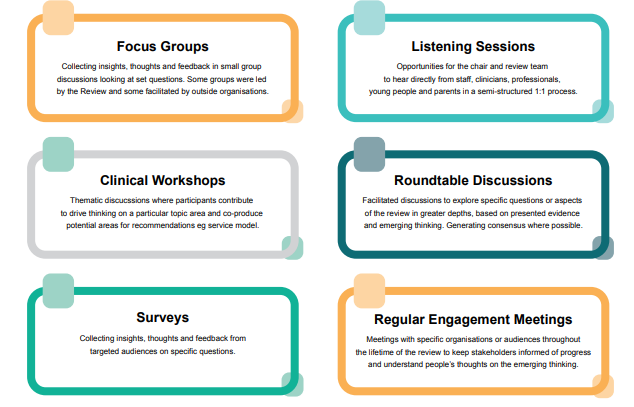Engagement

“There’s going to be a lot of listening – listening to those who have experience either as a young person, a family member, or a professional in the field”.
Dr Hilary Cass
The Review took an investigative approach to its work, which meant that outcomes were developed through an ongoing dialogue aimed at building a shared understanding of the current situation and how it can and should be improved for children and young people.
The recommendations of the Review are based on evidence, including lived experience of children, young people and adults, parents and professionals.
The Review made a commitment to employ different methods to engage with stakeholders in a manner that made them feel safe and supported and allowed quieter voices to be heard. We sought to create a range of different opportunities so that people felt confident and comfortable to share their experiences and views, this included:

You can learn more about these activities and their outputs in the Review’s engagement report.
To guide this activity we established engagement principles.
Two categories of stakeholders were prioritised in the engagement programme:
- People with relevant lived experience (direct or as a parent/carer) and organisations working with LGBT+ children and young people generally. Read more about the Lived experience focus groups
- Clinicians and other relevant professionals with responsibility for providing care and support to children and young people, both within specialist gender services and beyond. Read more about the Review’s engagement with clinicians.
We thank those who gave their time to participate in these activities.
“I couldn’t have undertaken this review without the significant contribution of people with lived experience, their families, and professionals from a wide range of backgrounds. I’m very grateful to everyone who generously gave their time to share their stories, experiences, and expertise.”
Dr Hilary Cass
